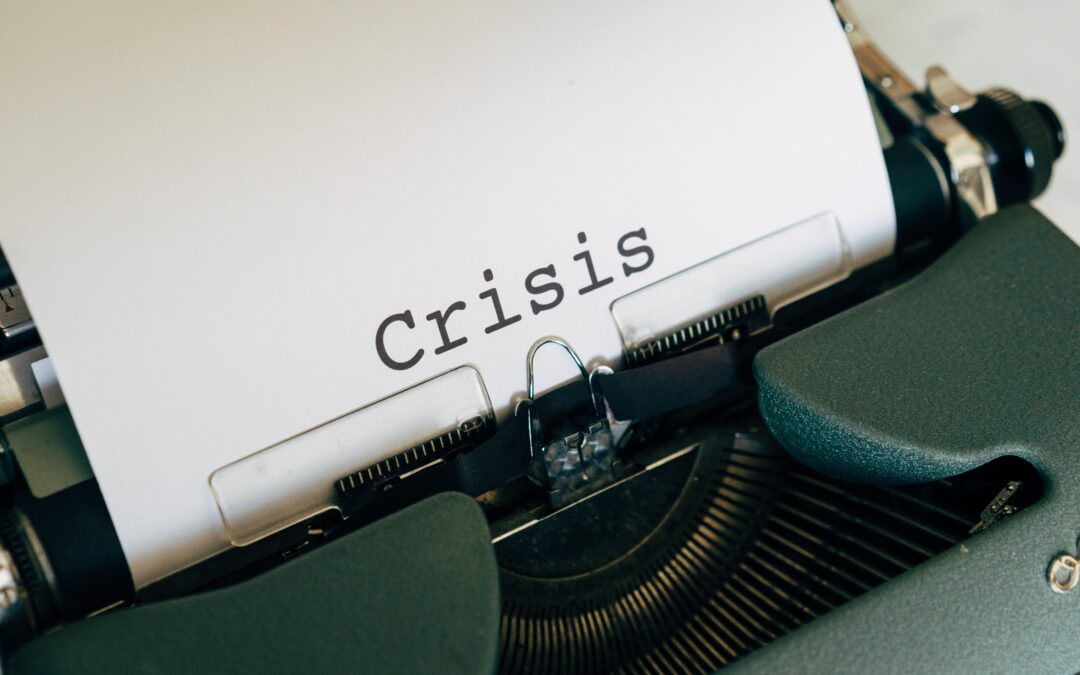A crisis management strategy is crucial for any business to thrive through uncertain times.
Whether this happens on a global scale like the COVID-19 pandemic, or it’s something local or even internal, every business owner should have plans in place to keep their business afloat through times of uncertainty.
Planning and preparing for crises, and even having this as a key part of your business strategy, can help to mitigate problems and manage all types of business risk.
Can You Really Plan For a Crisis?
By now, almost every business in the world has a clear understanding of how an unprecedented global health crisis can create disruptions through almost every aspect of life.
Whether it’s a disruption in your supply chain or a difficult decision to furlough employees, managers have had to face difficult decisions across the board.
And this particular crisis of COVID-19 will continue to affect us going forward.
Whether or not your future crisis management activities are directly related to COVID-19, it’s a good time to take stock of what types of shifts could happen and establish some plans and procedures ahead of time.
Here are some examples of common business problems which could lead a business to financial and legal risk:
- Hiring or layoff practices
- Supply chain problems
- Economic downturns
- Health and wellness
- Cyberattacks
- Environmental problems
- Reputation management
- Discrimination and harassment
- Fraud
- Shareholder disputes
Having a trusted business law expert on your side can help protect you from liability claims arising from these types of problems.
Check out our list of best practices for protecting your business during a crisis.
Employer and Employee Rights
A thorough risk assessment and subsequent crisis management plan can help you understand where your business is most vulnerable.
Once protocols are put in place, everyone involved in the business can be clear about what to expect, and prepare accordingly themselves.
This doesn’t prevent crises from happening but can offer a sort of shock absorption where you and your team (hopefully) won’t’ feel the hit so hard.
The current coronavirus situation will likely pave the way for how to handle future pandemics, and how to handle things if the virus sticks around (we should expect it to).
Crisis management also relates to employer rights to the extent that they need to follow legal and ethical guidelines pertaining to the treatment of their employees while facing significant financial strain.
One of the main questions we’ve gotten since the COVID-19 pandemic started is whether or not it’s in an employer’s legal right to lay people off.
With COVID-19 you have a right to do so but you need to understand the consequences, such as the Worker Adjustment and Retraining Notification Act (WARN) and equivalent state acts.
The purpose of this act is to ensure that workers get adequate warning before significant layoffs in the case of sudden or dramatic events – with some exceptions.
We encourage you to get legal help if you are struggling to understand such rules and regulations, and especially if you are considering significant layoffs.
Loss of Income and Revenue
Loss of personal income as well as business revenue is a stark fact of crises that will hit some more than others.
Some solutions or next steps might include:
- Pivoting your existing business
- Starting a second business
- Declaring bankruptcy
- Getting help with your accounts receivables
- Moving your entire business to your home permanently
- Seeking alternative sources of financing
- CARES Financial Relief Act
We suggest keeping in touch with other local businesses, with community business associations and related organizations in order to stay on top of new financing options, as well as emerging rules and regulations regarding this pandemic.
Working From Home During a Crisis
It doesn’t matter if people are working at home during a crisis, if the crisis forces people home, or if people are returning back to work
Crisis management is essential for your protection, as well as your team’s.
In the past crisis management was more like PR after a contentious situation (think #metoo), and big companies would just hire a PR firm to manage publicity
Another way is to have independent investigations and HR personnel acting as neutral bodies.
But with COVID we’ve seen a whole host of literally unprecedented situations pop out of the woodwork which don’t have any set legal or ethical precedent.
The costs are beyond monetary, but of course, the financial risk is something you need to be considering as a part of your crisis management
An Ounce of Prevention…
Planning is great, but you can only plan for so much.
If you’re looking to build concrete crisis management strategies and incorporate sound solutions into your business model, we can help to ensure that these are legally binding.
We can’t prevent all problems, but having a trusted expert support team on your side ahead of time can soften the impact of unpredictable events which could otherwise be the downfall of your business.
With the right counsel on board, you’ll build a more resilient and sustainable business that can survive the highs and lows of an uncertain economic climate.
Contact us to get started on developing your crisis management strategy.
Enjoyed this article? Here are three more to help you:
Top 5 Legal Concerns for Influencers on Social Media
Is It Legal To Pay Employees Cash?
How to Start Your Own Virtual Business During a Time of Crisis



